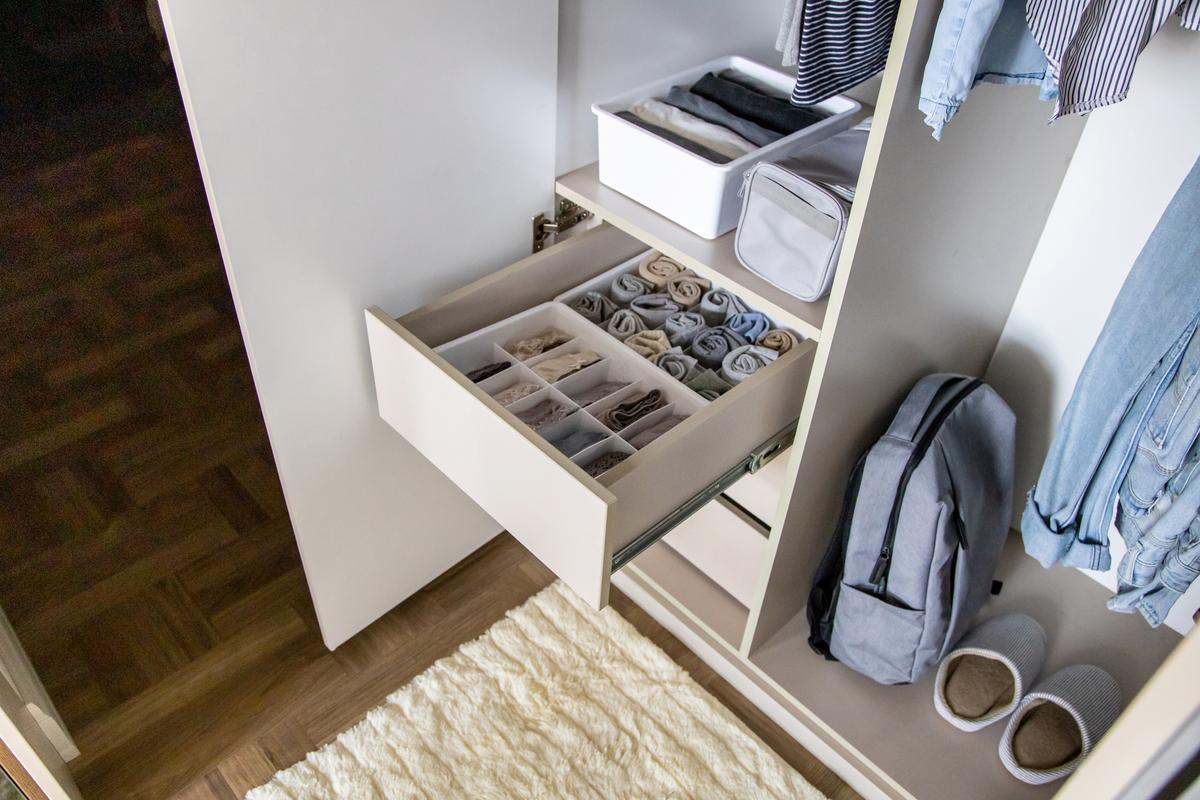Ensure your cupboards and closets are designed to suit specific needs. Optimum storage in minimum space is the mantra
Ensure your cupboards and closets are designed to suit specific needs. Optimum storage in minimum space is the mantra
Sarah Jessica Parker’s Carrie Bradshaw had quite a few loves on Sex and the City, but no one came close to her closet. Like she famously said: “You don’t need a diamond ring when you can have a really big closet!”
As lifestyles evolve and ‘more the merrier’ becomes the mantra of the day, it’s important to have cupboards and closets designed to suit specific needs.
Apart from making place for clothes, shoes, accessories and makeup, modern closets are multifunctional areas that often include dressing space, mirrors, and other add-ons.
How do you ensure that your closet — be it store-bought or custom-made — is the perfect match for you and allows maximum storage in minimum space?
The perfect match: Like any room, a closet works best if it is designed for the person who will use it. A woman’s closet needs plenty of room for shoes, a man’s wardrobe may require additional rods to hang shirts and jackets. Remember habits and ways of storage (do you roll up socks or fold them, do you hang up your dresses or prefer to put them on shelves) to ensure that the space serves you best.
Organise it right: The rule of thumb — most-used items at eye level, less-used below, and least-used high above. Plan your shelf arrangement — they should be spaced about 12 inches apart for regular clothes and 14 inches apart for bulkier items such as sweaters and jackets. Try drawer organisers to fit in more socks, under clothes, and other small items. Put up a bunch of hooks and rods to hang up bags, scarves, trinkets, belts and ties. Hooks don’t have to be restricted to the doors; nail them into the back of the closet to hang bandanas and scarves. “Shoe organisers can hang over the back of the door or can sit on the floor of the closet. If not, get deep drawers made at the bottom of the closet. Bins and baskets stacked up at the bottom of the closet can be used for storing loose items,” says Aarti Bhatt, an Ahmedabad-based designer.
Keep things visible: Ensure that your closet allows maximum visibility. Using wire and glass baskets or drawers makes it easy to find what you’re looking for (even in the early morning rush). “The many closet accessories available — acrylic- or glass-fronted drawers, drawers with dividers, belt and tie racks, and transparent organisers — can keep things ship-shape,” Dev says. The upside: your closet is likely to stay tidier for longer if you don’t fling things about. Consider putting in a lighting fixture inside a closet to ensure that you can search for things easily.
Expand the space: Optimise vertical space by planning your closet according to your needs. Shelves should be adjustable and movable within the closet to allow maximum versatility. For an instant dressing room, install a full-length mirror on the inside of the closet door. If you have the space, an ottoman with storage brings you seating, storage, and a choosing area. “The vertical space above your hanging clothes can be used to slide in a small drawer for trinkets. Pullout containers in corners and on the floor, and rods at multiple heights also work well. Ensure that the drawers are not too small — they need to hold your items,” Aarti advises.

Cut the clutter: The best way to ensure that your closet is in mint condition is to always keep it tidy and clutter free. A spring cleaning is called for, no matter what season it may be. Classify things into your closet into three piles — trash, give away, and keep. Then, sort out and arrange your clothes to keep — they can be classified as formal, casual and home wear, sub-categorised into tops, shirts, Tees, pants, denims, skirts, jackets, and so on. Accessories, bags and shoes should be stored on different shelves (or drawers) to avoid creating a mess.
And Just Like That, you have a closet that Carrie would approve of. As she said, “I like my money where I can see it — hanging in my closet.”
Heads-up
Ask yourself a few tough questions, suggests Dev Mitra, Mumbai-based designer.
How much do you need to store in your closet? The more apparel and accessories you possess, the more space you need.
Can you get a bespoke closet (a walk-in?) that can be customised to store your things and address specific needs?
Will you be sharing the closet or a section of it with anyone else?
Will shoes, bags and belts also be stored in the closet?
Should the closet also have a built-in dresser?
























